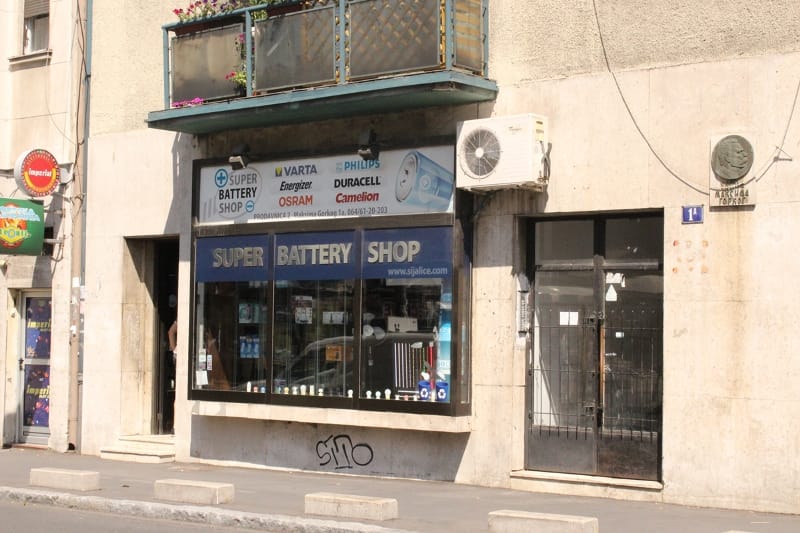The fate of shops, showrooms, warehouse and other real property which are owned by the firms located in Serbia or Bosnia and Herzegovina (BiH) proper has yet to be solved despite the fact that a decade has passed after the signing of the Succession Agreement. This document binds both states to return property to their rightful owners.
The Agreement signed in Vienna in 2001, foresaw that the property of other states was going to be recognized, protected and returned to its original state in which it was on Dec. 31, 1990 regardless of the owner’s ethnicity, citizenship and place of residence.
Nevertheless, since the Agreement came into effect, the property of some firms has been resold, illegally acquired or hidden from its real owners.
According to an investigation from the Centers for Investigative Reporting in Belgrade and Sarajevo (CINS/CIN), more than 50 BiH firms seeks to establish the ownership of their property located in Serbia, while 38 Serbian does the same in BiH. The list of BiH companies includes Hepok, Agrokomerc, Borac Travnik, Leather and Textile Factory (KTK) Visoko, as well as the Serbian companies Tehnopromet and Autotehna-Avis.
Workers took over the property
According to data acquired by the reporters, around 200 buildings which are located in Serbia and whose value surpasses €50 million has yet to be returned to their BiH owners. Among these are the offices belonging to a Velika Kladuša based Agrokomerc and a Mostar-based Hepok. According to people CIN/CINS interviewed, the Belgrade employees of these two firms tried to work the issues out in their own way – by setting up new companies.
Agrokomerc employees set up a new company Agrokomerc v.k.l. Belgrade in 1995 and started a procedure to incorporated the property at a Belgrade address into the new firm.
The Belgrade director of Agrokomerc Jasmina Stojanović said that the property should be divided equally. “Not everything can be theirs. The workers invested into Agrokomerc’s property in Serbia“. If it comes to the crunch, she said that she would press the case before the European Court of Human Rights.

The officials from the Agency for Privatization of the Federation of BiH (FBiH) think that the newly-established firm cannot deed the property because the parent company from Velika Kladuša in BiH had acquired it 30 years ago. This is why they filed a litigation before a Belgrade court.
The FBiH Privatization agency has commissioned a lawyer Marinko Šakan to work on several cases. He said that Hepok employees have set up a new firm to which they transferred Belgrade property. However, the new firm went into bankruptcy and its trustee has sold out the assets.
Šakan explained that Srbija should not have allowed the sale of property via bankruptcy since Hepok’s property in Serbia was the subject of the Succession Agreement. This is why they filed the litigation in an attempt to return the property.
“The case of Hepok is extremely important because the Serbian court must answer how it is possible for one to become an owner by buying property from a non-owner”, said Šakan.
Directors Hid Away Property
Officials from the FBiH Privatization Agency told CINS/CIN reporters that the directors of some companies did not report all property in Serbia on their financial statements. Among those is reportedly the property owned by a Travnik-based Borac.
“Only the directors knew the whereabouts and the state some property was in. They have even sold them in some cases”, said Šuhret Fazlić, the director of the FBiH Privatization Agency. He added that they have informed the responsible ministry. “We did this in the case of Krivaja, KTK Visoko and Borac Travnik.”
In the beginning of 2010, a Visoko-based KTK sold an office in Kraljevo to Ahmed Kurtagić for €20,485. The property was sold without the prior approval of the FBiH Government, which was the real owner of all property that was considered to be the part of passive sub-balance and subject to the privatization.
The officials from the FBiH Privatization Agency said that they have found out about the sale after the fact, from a Belgrade firm that wanted to barter its real property for KTK’s property in Kraljevo.
“That firm asked us if we could do the bartering and we replied negatively”, explained Senad Rahimić, an assistant to the Agency’s director. They asked the firm to give the Agency evidence that the sale of property had taken place. Rahimić said that the building in Kraljevo was sold based on the decision of KTK’s Supervisory Board. Its then director Asmir Hodži signed the contract.

“They shouldn’t have done this without the FBiH government’s decision”, said Rahimić adding that the management of KTK Visoko had earlier asked the Privatization Agency for an approval to sell the property. They were told that only the FBiH government had such powers.
The Federation ministry of energy, industry and mining that is in charge of these companies, has filed a criminal complaint against Hodžić and the Supervisory Board alleging that the FBiH was damaged for the price of this property. Also, a lawsuit was filed in Kraljevo to void the bill of sale.
By and Large the Serb Companies Have Returned their Property
According to a survey conducted by the Serbian Ministry of Finances and Industry in 2009, 38 firms reported to have assets on the BiH territory.
The reporters have found that some of them returned their property in BiH and sold it on. These are firms like Jugoslovensko Rečno Brodarstvo which sold 11 properties in Brčko. Niš-based Jugorendgen also sold its 25 offices in Sarajevo, Tuzla, Gračanica and other places. The same goes for Subotica-based Pionir and ATB Sever.
Still, among them are those which still don’t know when their property will be returned.
Dejan Mladenović, director of Belgrade Autotehna-Avis company, said that they’ve left over 100 cars worth around €2 million and some real property in BiH.
“None of these offices and apartments have been returned. We’re trying through some layers down there. I don’t know in what phase is that what”, said Mladenović.
According to Milovan Janjić, the manager of Tehnopromet Beograd, the firm had offices in Sarajevo which it had fought to return for a long time, but to no avail.
“Now a government institution is in those offices”, said Janjić.

BiH Belatedly Remembered its Properties
In order to successfully implement the Succession Agreement, the countries that emerged from the break-up of the Former Yugoslavia had set up a Permanent Mixed Committee. According to media, the last meeting took place in Belgrade in 2009.
“The basic issue with the succession is that there was unevenness in actions, so one annex has almost been implemented—such is the annex for embassies—while others have not even been started. This does not makes sense and it is not good for the succession”, said Oliver Antić, a senior Serbian official with the Succession Commission.
Antić, who was appointed to this post last December, said that he had encountered a bad and complicated state of affairs and that there was insufficient progress on the implementation of the Agreement.
Fazlić of the FBiH Privatization Agency agrees.
“A number of issues conspired so that here we are in 2013 without having achieved anything of note. It’s a grade two on a scale from one to ten”, said Fazlić, trying to sum up the current experience with the implementation of the Succession Agreement between Serbia and BiH.
Fazlić added that the institution he’s heading has not done much in the past to recover the property and that an issue was also the fact that the privatization has been under the auspices of various institutions among which there was no coordination.

The documents in the possession of the Serbian Ministry of Finances support his words.
The Serbian government issued an ordinance in 2008 ordering that the firms from the countries of the Former Yugoslavia had to sign an agreement with the Serbian Ministry of Finances in order to define what they owned in Serbia.
There were also certain deadlines until which the companies had to do this. Even though there were more than 50 BiH firms that fit the bill, only eight have responded by March 2012: Sarajevo-based Šipad Komerc, Forum, Unis Pretis, and Magrosprom; Tuzla-based Prevoz and Dita; Krivaja and Bijeljina-based Šipad Komerc. So far no agreements have been signed with any of them.
Serbian Ministry of Finances wrote in its letter to CIN/CINS that the agreements have not been signed mainly because of “one of the parties would reject parts of the Agreement”.
Lawyer Branko Pavlović, a former director of the Serbian Privatization Agency and the current legal representative of Šipad Sarajevo, said that the Serbian government had an obligation to start implementing the Agreement from the get-go. Instead, it made the procedures more complicated with the intention to postpone the Agreement’s implementation indefinitely.
“There is a hierarchy of legal acts in each and every legal order. The first one is the constitution, and under it are those ratified international agreements, such as the Succession Agreement. No party can unilaterally issue a law or a decree that would change the Agreement”, said Pavlović.
He added that the postponement of the implementation of the Agreement was bad for Serbia because the companies’ workers were left without the owner who would pay their benefits and government taxes and took care of the property which has been decaying.
Database: the list of BiH and Serbian companies’ real properties from the passive sub-balance.








